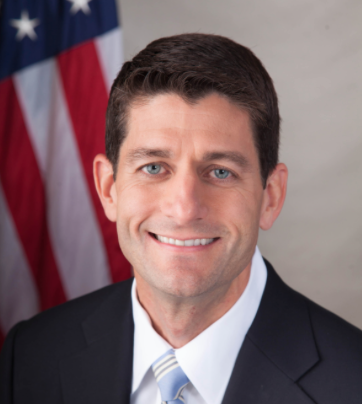Paul Ryan’s attitude toward taking command of the Republican forces in the House of Representatives reminds me of another GOP leader. Dwight D. Eisenhower, the brilliant military strategist, said shortly after World War II and before he became president, “I hate war as only a soldier who has lived it can, only as one who has seen its brutality, its stupidity.”
Some suspect that the congressman from Wisconsin has similar feelings toward brinksmanship politics, which is why some members of the mysterious Freedom Caucus are less than thrilled by his reluctant ascension to the post of Speaker of the House.
“This is not a job I’ve ever wanted, I’ve ever sought,” Mr. Ryan said on Tuesday, according to the Atlantic’s Russell Berman. “I came to the conclusion that this is a dire moment.”
Warming to the idea that the hardliners’ chasing of John Boehner from the speakership was a turning point akin to the 1941 attack on Pearl Harbor, Mr. Ryan continued, “My greatest worry…is the consequence of not stepping up. Of some day having my own kids ask me, when the stakes were so high, ‘Why didn’t you do all you could? Why didn’t you stand and fight for my future when you had the chance?’ None of us wants to hear that question.”
Politico reported on Tuesday that Mr. Ryan would agree to become speaker only if endorsed by three major groups within the GOP House membership: the Republican Study Committee, the moderate Tuesday Group, and the troublesome Freedom Caucus. By Thursday, Mr. Ryan had the backing of most Freedom Caucus members, though not enough for a formal endorsement; that seems to meet his preconditions.
As the New York Times’ Jennifer Steinhauer and Emmarie Huetteman wrote on Tuesday, “Mr. Ryan appeared to be playing a rather canny card. Instead of begging for support, he more or less dared members not to give it, leaving them the option of rejecting him and trying to find another willing candidate while explaining to the party—and perhaps the nation—why Mr. Ryan was not a viable choice.”
“I dare you not to elect me” is not a common slogan in American politics, and perhaps Mr. Ryan’s strategy illuminates why he chose not to run for president in 2016, a venture that would have required nonstop begging of party leaders, campaign contributors, and early-state voters. (Jeb Bush’s discomfort with this process has been palpable; one common trait between Mitt Romney and Donald Trump is that they’re able to beg for votes without seeming like they’re begging.) The maneuvering in the House is strikingly un-American, more like the power politics in a parliament with multiple parties. As many have pointed out, the Freedom Caucus behaves more like a far-right party in a coalition government than as a wing of the Republican Party, constantly threatening to bring down whoever is speaker and willing to shut down the federal government to achieve their goals. It would be understandable if Mr. Ryan views his role as resembling Ike’s command of the Allied nations in Europe during World War II.
To get the support of most Freedom Caucus members, Mr. Ryan pledged to maintain the “Hastert rule,” which prevents legislation from going to the House membership unless it is supported by a majority of the majority party (i.e., a majority of Republicans). This convention, too, seems a better fit for a multi-party parliamentary system, in which the inability of a coalition government to pass necessary bills would lead to new elections instead of the paralysis we now see so often in Congress. But Freedom Caucus members never forgave outgoing Speaker John Boehner for ending a federal government shutdown in 2013 and raising the nation’s debt limit last year with Democratic votes, over the objections of a majority of Republican members. (They are also exacted a promise from Mr. Ryan that he would not attempt to pass immigration reform on the basis of votes from Democratic House members.)
Mr. Ryan, like Mr. Boehner before him, may come to feel a personal responsibility for allowing the federal government to perform its basic functions. In 2013, the U.S. Conference of Catholic Bishops called for “wise bipartisan leadership and moral clarity in crafting a plan to ensure the government continues to operate and meet its responsibility to protect human life and dignity, care for poor and vulnerable people at home and abroad, and advance the universal common good.” The U.S.C.C.B. praised the compromise, hated by so many House Republicans, that re-opened the government. It remains to be seen if Mr. Ryan, a Catholic like Mr. Boehner, can do better at reconciling stable government with his longstanding belief in smaller government.
Who is the Freedom Caucus?
The Pew Research Center has come up with a good explainer on the Republican faction in the House that has shown the most resistance to Mr. Boehner and Mr. Ryan. Pew researchers have confirmed 36 members of the Freedom Caucus (“Membership is by invitation only, and meetings are not public.”), 15 of whom are from states that voted for Democrat Barack Obama in 2012. Strikingly, 72 percent of the members have been in the House for three terms or fewer, compared with 54 percent of all House Republicans.
To put the numbers another way, none of the Freedom Caucus members have been in the House for at least 10 terms, but 31 percent of the House’s 188 Democrats have been in for at least that long. It’s another sign that the Democratic Party—whose leaders include 67-year-old Hillary Clinton, 75-year-old Harry Reid, and 75-year-old Nancy Pelosi—are not doing a good job of bringing in younger voices.








